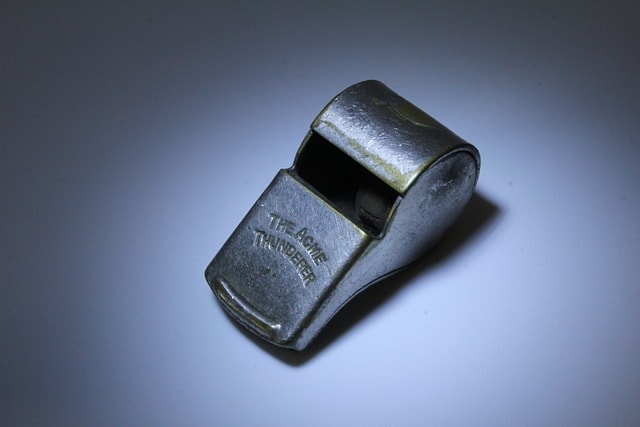Comprehensive Guide to California Whistleblower Protection Laws

Introduction to Whistleblowing in California
Whistleblowing plays a crucial role in maintaining integrity, accountability, and public safety in both the public and private sectors. California, recognizing the importance of protecting those who speak out against wrongdoing, has established some of the most robust whistleblower protection laws in the United States. These laws are similar to federal statutes that protect federal employees from adverse actions by the federal government when they disclose information showing violations of law, mismanagement, waste of funds, abuse of authority, or danger to public safety or health. This comprehensive guide delves into the intricacies of California’s whistleblower protection framework, offering valuable insights for employees, employers, legal professionals, and anyone interested in understanding these vital protections.
Historical Context of Whistleblower Laws in California

To truly appreciate the current state of whistleblower protections in California, it’s essential to understand their historical development:
Early Developments
California’s journey towards comprehensive whistleblower protection began in the 1980s, with the passage of the California Whistleblower Protection Act in 1984. This landmark legislation laid the groundwork for protecting state employees who reported improper governmental activities. The Whistleblower Protection Enhancement Act was a significant federal legislative milestone influencing state laws.
Expansion to Private Sector
Recognizing the need for broader protections, California expanded whistleblower laws to cover private-sector employees with the Labor Code Section 1102.5 amendment in 2003. This expansion marked a significant step forward in ensuring that all workers in California had legal recourse if they faced retaliation for reporting misconduct.
Recent Enhancements
Over the past decade, California has strengthened its whistleblower protection laws. Notable changes include:
- Expansion of protected activities to include internal complaints (2014)
- Extension of protections to family members of whistleblowers (2016)
- Increased penalties for violations of whistleblower protection laws (2018)
These ongoing enhancements demonstrate California’s commitment to fostering a culture of transparency and accountability across all sectors.
California Whistleblower Laws in Detail

California’s whistleblower protection framework is built on several key pieces of legislation:
California Whistleblower Protection Act (Labor Code Section 1102.5)
This is the cornerstone of whistleblower protection in California, applying to public and private sector employees. Key provisions include:
- Protected Activities: The act protects employees who:
- Report violations of state or federal laws, rules, or regulations, including current or former employees who report such violations
- Refuse to participate in activities that would result in violations of law
- Provide information to or testify before any public body conducting an investigation, hearing, or inquiry
- Report a substantial and specific danger to public health or safety
- Broad Coverage: Protection extends to reports made internally to supervisors or externally to government agencies or law enforcement.
- Prohibition of Retaliation: Employers are prohibited from retaliating against employees who engage in protected whistleblowing activities.
- Remedies: Whistleblowers who face retaliation can seek reinstatement, back pay, and damages.
California State Employee Whistleblower Protection Act (Government Code Sections 8547-8547.12)
This act protects explicitly state employees and provides additional safeguards:
- Definition of Improper Governmental Activities: Includes corruption, malfeasance, gross misconduct, incompetency, or inefficiency.
- Confidentiality: Provides for the confidentiality of whistleblowers’ identities, with certain exceptions.
- State Auditor’s Role: This legislation establishes the California State Auditor as a key entity for receiving and investigating whistleblower complaints. The State Auditor may also act as an employee designated to receive disclosures of sensitive information.
Health and Safety Whistleblower Protections (Labor Code Section 6310)
This section provides specific protections for employees who report health and safety violations:
- OSHA Complaints: Protects employees who file complaints with the California Division of Occupational Safety and Health (Cal/OSHA).
- Refusal of Unsafe Work: Safeguards employees who refuse to perform work that would violate health and safety standards.
- Healthcare Worker Protections: Offers additional protections for healthcare workers who report patient safety concerns.
Related Terms: safety or health complaint, federal employee responsible, law enforcement agency, other law enforcement agency, inspector general act’s provisions, national security
What Constitutes a Protected Disclosure in California?
Understanding what qualifies as a protected disclosure is crucial for potential whistleblowers. In California, protected disclosures encompass a wide range of reports:
Violations of Law, Rules, or Regulations
- Reporting any breach of state or federal statutes
- Disclosing noncompliance with local, state, or federal rules or regulations, especially those posing a substantial and specific danger to public health or safety
- Highlighting violations of executive orders or judicial decisions
Unsafe Working Conditions
- Reporting hazardous work environments
- Disclosing violations of workplace safety standards
- Alerting authorities to potential public safety risks
Financial Misconduct
- Reporting fraud, waste, or abuse of public resources
- Disclosing embezzlement or misuse of funds
- Highlighting gross mismanagement of public funds
Environmental Violations
- Reporting violations of environmental protection laws
- Disclosing improper handling or disposal of hazardous materials
- Alerting authorities to activities that pose environmental risks
Healthcare and Patient Safety
- Reporting substandard care in healthcare facilities
- Disclosing medication errors or improper medical practices
- Alerting authorities to violations of patient privacy laws
Ethical Violations
- Reporting conflicts of interest
- Disclosing instances of bribery or corruption
- Highlighting breaches of professional codes of conduct
It’s important to note that in California, the whistleblower only needs to believe that a violation has occurred reasonably. The disclosure is protected even if it ultimately turns out to be incorrect, as long as the belief is reasonable and in good faith.
Who is Protected Under California Whistleblower Laws?
California’s whistleblower protection laws cast a wide net, covering various categories of workers:
State Employees
- All employees of California state agencies
- University of California and California State University employees
- Employees of California Community Colleges
Private Sector Employees
- Employees of private companies operating in California
- Regardless of the size of the company or the employee’s position
Contractors and Subcontractors
- Individuals performing work for the state of California under contract
- Subcontractors working on state projects
Temporary and Seasonal Workers
- Protections extend to temporary and seasonal employees
- Includes workers in agriculture, construction, and other industries with high rates of temporary employment
Job Applicants
- Protection against retaliation for past whistleblowing activities
- Safeguards for those who disclose violations during the application process
Former Employees
Protection extends to former employees who face post-employment retaliation. This includes former federal employees protected under various laws and acts, such as the Lloyd–La Follette Act of 1912 and the Clean Water Act of 1972. Government agencies, including the Department of Labor’s Whistleblower Protection Program, enforce these protections, which handles retaliation claims from federal employees.
Family Members
- Recent amendments extend protection to family members of whistleblowers who may face retaliation.
Reporting Mechanisms in California
California provides multiple channels for whistleblowers to report misconduct, ensuring that individuals can choose the most appropriate avenue for their situation:
State Auditor’s Office
- The primary recipient of whistleblower complaints for state employees
- Operates a confidential hotline and online reporting system
- Conducts investigations into reported improper governmental activities
Labor Commissioner’s Office
- Handles complaints from private sector employees
- Investigates retaliation claims related to whistleblowing
- Provides resources and guidance for whistleblowers
California Occupational Safety and Health Administration (Cal/OSHA)
- Receives and investigates workplace safety and health complaints
- Protects workers who report violations of safety standards
- Conducts workplace inspections based on whistleblower reports
California Attorney General’s Office
- Accepts whistleblower complaints related to violations of state law
- Investigates reports of large-scale fraud or corruption
- Can pursue legal action on behalf of the state
Internal Reporting Channels
Many companies have established internal reporting systems.
These may include hotlines, online portals, or designated compliance officers. However, it is essential to note that internal compliance officers cannot act as legal representatives for whistleblowers.
California law protects internal reports to supervisors or management.
Federal Agencies
- For certain types of violations, federal agencies may be appropriate
- Examples include the SEC for securities violations or the EPA for environmental issues
- Federal protections may apply in addition to California state laws
Protection Against Retaliation
One of the cornerstones of California’s whistleblower laws is the strong protection against retaliation. Understanding these protections is crucial for both employees and employers:
Prohibited Retaliatory Actions
California law prohibits a wide range of retaliatory actions, including:
- Termination or wrongful discharge
- Demotion or denial of promotion
- Salary reduction or denial of benefits
- Transfer to less desirable positions or locations
- Negative performance evaluations
- Creating a hostile work environment
- Threats or intimidation
- “Remember this text: Interfering with future employment prospects.”
Burden of Proof
In California, the burden of proof in retaliation cases is favorable to whistleblowers:
- The employee must first show that they engaged in protected activity and suffered an adverse action
- The burden then shifts to the employer to prove that the action was taken for legitimate, non-retaliatory reasons
- This burden-shifting framework provides significant protection for whistleblowers
Statute of Limitations
- Generally, whistleblowers have three years from the date of retaliation to file a claim.
- For some types of claims, the statute of limitations may be shorter, so prompt action is advisable.
Remedies for Retaliation
California law provides robust remedies for whistleblowers who have faced retaliation:
- Reinstatement to their former position
- Back pay and benefits
- Front pay (future lost wages) in cases where reinstatement is not feasible
- Compensatory damages for emotional distress
- Punitive damages in cases of egregious violations
- Attorney’s fees and court costs
Confidentiality and Anonymity
- California law provides for the confidentiality of whistleblower identities in many cases
- Anonymous reporting is allowed, though it may limit the ability to conduct a thorough investigation
- Employers are prohibited from attempting to identify anonymous whistleblowers
Special Considerations in California Whistleblower Cases
Several unique aspects of California law warrant special attention:
Broad Definition of Employer
- California’s definition of “employer” is expansive, covering individuals acting on behalf of employers.
- This can include supervisors, managers, and even co-workers who participate in retaliation.
Protection for Perceived Whistleblowers
- California law protects employees who are perceived to be whistleblowers, even if they haven’t made a report.
- This prevents employers from retaliating based on mere suspicion of whistleblowing activity.
Extraterritorial Application
- California courts have held that the state’s whistleblower protections can apply to employees working outside of California for California-based companies.
- This extends protection to a broader range of workers and situations
Interaction with Federal Laws
- In many cases, California whistleblower laws provide more robust protections than federal laws.
- However, federal laws may provide additional avenues for reporting and protection in specific industries or situations.
Protection for Anticipated Whistleblowing
- California law protects employees who are preparing to blow the whistle, even if they haven’t yet made a report.
- This prevents employers from preemptively retaliating against potential whistleblowers.
Employer Responsibilities and Best Practices
California law places specific responsibilities on employers and provides guidance for best practices:
Whistleblower Policies
- Employers are required to have clear, written policies for reporting misconduct.
- These policies should be easily accessible to all employees
- Regular training on whistleblower rights and procedures is recommended
Non-Retaliation Policies
- Employers should have explicit policies prohibiting retaliation against whistleblowers
- These policies should define retaliation broadly and provide clear reporting mechanisms for retaliation concerns
Investigation Procedures
- Employers should establish clear procedures for investigating whistleblower complaints
- These procedures should ensure thoroughness, impartiality, and confidentiality
Documentation
- Proper documentation of all complaints, investigations, and employment decisions is crucial
- This documentation can be vital in defending against claims of retaliation
Training
- Regular training for managers and supervisors on handling whistleblower complaints is essential
- All employees should receive training on their rights and the company’s reporting procedures
Creating a Speak-Up Culture
- Employers should foster an organizational culture that encourages reporting of concerns
- This includes recognizing and rewarding ethical behavior and addressing concerns promptly
Challenges and Controversies in California Whistleblower Law
While California’s whistleblower protections are robust, several challenges and areas of controversy exist:
Defining “Reasonable Belief”
- The standard of “reasonable belief” in reporting violations can be subjective.
- Courts continue to refine the interpretation of what constitutes a reasonable belief.
Balancing Confidentiality and Investigation
- Maintaining whistleblower confidentiality while conducting thorough investigations can be challenging.
- Employers must navigate this carefully to avoid violating protection laws
Cybersecurity and Data Privacy Concerns
- The increasing use of technology in reporting systems raises questions about data protection and privacy.
- Employers must ensure that their reporting mechanisms comply with data privacy laws
Intersection with Employment Agreements
- Non-disclosure agreements and arbitration clauses can complicate whistleblower cases
- Recent legislation has limited the use of such agreements to prevent the silencing of whistleblowers
Protections for Government Contractors
- The extent of protections for employees of government contractors remains an area of ongoing legal development
Recent Developments and Future Trends
California’s whistleblower protection landscape continues to evolve:
Expansion of Anti-Retaliation Provisions
- Recent years have seen an expansion of anti-retaliation provisions to cover more types of protected activities
- This trend is likely to continue, providing even broader protections for whistleblowers
Increased Penalties for Violations
- There’s a trend towards increasing penalties for employers who violate whistleblower protection laws
- This includes both higher fines and potential criminal penalties in severe cases
Focus on Cybersecurity Whistleblowing
- With cybersecurity’s increasing importance, there is growing attention to protections for those who report cybersecurity vulnerabilities or breaches.
Integration with ESG Initiatives
- As companies focus more on Environmental, Social, and Governance (ESG) issues, whistleblower protections are becoming increasingly integrated with these initiatives.
Potential Federal Preemption Challenges
- As federal whistleblower laws evolve, challenges may arise regarding the preemption of California’s more stringent regulations.
- This remains an area to watch in coming years
Conclusion
California’s whistleblower protection laws are some of the most comprehensive and robust in the nation. By providing strong safeguards against retaliation and clear mechanisms for reporting misconduct, these laws play a crucial role in promoting transparency, accountability, and ethical behavior across the public and private sectors.
Understanding these protections is crucial for potential whistleblowers to make informed decisions about reporting misconduct. For employers, compliance with these laws and implementation of best practices not only avoids legal risk but also fosters a culture of integrity that can benefit the organization as a whole.
As the legal landscape continues to evolve, it remains important for all stakeholders to stay informed about changes in whistleblower protection laws. By working together to uphold these protections, Californians can contribute to a more transparent, ethical, and accountable society.













